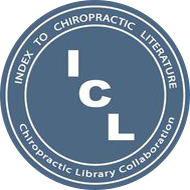OBJECTIVES: To investigate whether the characteristics of unpleasant sid effects after spinal manipulative therapy coincide with those obtained in a previous study.
DESIGN: A prospective interview survey using standard questionnaires.
SETTING: Sixty-six Swedish private practices of chiropractic (response rate, 78%).
SUBJECTS: Ten consecutive patients per chiropractor (625 patients, 73% of target sample; 1858 recorded visits).
INTERVENTION: Spinal manipulation.
MAIN OUTCOME MEASURES: Self-reported unpleasant reactions, time of onset, duration and severity of symptoms.
RESULTS: Reactions to spinal manipulation are common and benign. They typically arise and disappear shortly after treatment (usually gone the day after treatment). The most common reactions are local discomfort in the area of treatment (two thirds of reactions), followed by pain in areas other than that of treatment, fatigue or headache (10% each). Nausea, dizziness or "other" reactions are uncommonly reported (< 5% of reactions). Reactions are most commonly reported by women and (for both genders) at the beginning of the treatment series. Patients with long lasting problems are more likely to report treatment reactions; however, patients with no prior experience of chiropractic care do not report more reactions than patients previously treated by chiropractors.
CONCLUSION: Common and uncommon reactions to chiropractic spinal manipulation have been identified, are to a large degree foreseeable and seem to be predominantly physiological in nature.
This abstract is reproduced with the permission of the publisher; full text is available by subscription. Click on the above link and select a publisher from PubMed's LinkOut feature.
